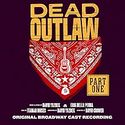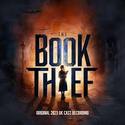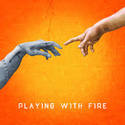|
Death takes no holiday with these releases, but these musicals aren't mired in morose misery.
 DEAD OUTLAW: PART One DEAD OUTLAW: PART One
7-track preview
2025 BROADWAY CAST
Audible/ Yellow Sound Label
Digital
If you thought a musical largely about a corpse couldn't have much of a life on stage, well, you'd be dead wrong. After garnering attention and awards Off-Broadway last year, Dead Outlaw, with the same cast, has moved to Broadway where it's getting more buzz and bravos and was nominated for more awards (including seven Tony noms). A full-length cast recording with all the songs written by David Yazbek and Erik Della Penna is scheduled for sometime in the autumn, but, in the meanwhile, those eager to hear songs performed by this strong company can enjoy seven tracks that have now been digitally released. And enjoyable they certainly are, serving up either robust raucousness or heart-tugging tenderness. Also in evidence are irony and thought-provoking (sometimes disturbing) observations.
In the title role of the deceased man named Elmer, Andrew Durand captures attention and sympathy on the first track, simply titled "Ballad," with a voice that is both strikingly sweet and disarming, as he sings with awe about images of nature ("... the cottonwoods are whistling/ And the owls and frogs join in./ The breeze in your hair,/ The honeysuckle air/ 'All there,' they sing ...")
Truth is stranger than fiction, and knowing that this unsettling saga and its points are indeed based on true events increases the already visceral gut-punch impact of the material. The macabre tale about a small-time criminal who died at age 31 and whose unclaimed body was embalmed and put on display in side shows and used as a prop in movies is infused with dark humor and becomes a commentary on human nature, morbid fascinations, shameless profiteering and exploitation. Elmer and others are referenced, with effective cavalier crassness, by characters of coroners and others in the selections in three selections. They are: "Up to the Stars," a terrific tour-de-force performed by Thom Sesma; the uber-blunt "Dead," sung by Jeb Brown and Erik Dell Penna, who are also members of the musical's five-person band; and "Something from Nothing," with the man played by showstopper Eddie Cooper unhesitatingly exhorting people to pay to look at the remains ("For a mere two bits, you can see the dead outlaw! ... I'm an entrepreneur/ Death is a business to me"). In her appearances, Julia Knitel, playing the female roles, adds a rewardingly contrasting wistfulness.
Cheeky and chilling, sad but stimulating, these samples of the Dead Outlaw score are riveting and engaging–with more to come.
 THE BOOK THIEF THE BOOK THIEF
2023 U.K. CAST RECORDING
Center Stage Records
Digital
"Here is a small fact: You are all going to die." Those are the words addressed to the audience as the musical titled The Book Thief begins. The sober reminder is spoken by an initially mysterious narrator who turns out to be Death personified (the effective Obioma Ugoala, making Death a surprisingly nuanced figure, rather than merely a spooky cartoon. The setting is Nazi Germany and while fear, danger, and mourning hover over the proceedings in this dramatic piece, present too are hope, perseverance, and caring relationships. Emphasis is put on the impact of kindness, "found" family, and the power that the written word can have. Not a blatant tear-jerker, there's restraint and thoughtfulness in the moving and artful work; characterizations feel committed. The uncompromising look at a horrific time in history, the story was born as a novel published 20 years ago (banned in some circles) and spawned a movie adaptation. The stage musical has had three limited runs in England in the last several years and the strong recently released cast recording represents a 2023 production. The digital booklet has a detailed plot synopsis, commentary, color photos, the words of the songs (music and lyrics by Elyssa Samsel and Kate Anderson), and the recording's included spoken lines (book by Jodi Picoult and Timothy Allen McDonald). Joined by five other musicians, keyboardist Matthew Malone leads the band. (He's also the orchestrator and arranger.)
If there are passages that seem more than a mite melodramatic, overwrought, or over-selling the idea that goodness will win over evil, it can feel justified given the situations and big hearts of key characters. And factor in the differences in perspectives, stoicism, and sensitivity that come from varied experiences and ages. Two characters are a young girl named Liesel–the actual book thief who learns to read from stolen or gifted volumes–and a boy she befriends. (In the production, the role of the girl was shared by two actresses, and three fellows shared the part of the boy; all are credited on the recording, but it isn't specified which one we hear on any given track.) Liesel is living with foster parents and, at their risk, a Jewish man named Max to whom they give shelter, hidden in the basement. These two adult male roles, as inhabited by Jack Lord (the substitute father/teacher) and Daniel Krikler (Max) are presented with great warmth as they bond with Liesel, role models who share books and life lessons through several potent songs.
While some songs have gravitas or glumness or build to a grandiose finish, there are some nice smaller moments. In a reprise of "Hello, Stars" Max addresses the shining stars in the night sky ("Even though you burn my eyes/ I know your light implies/ All your courage and your will/ And even though my stay is brief/ Your light is quite a nice relief"). An especially rousing, bright melody is provided for the situation of being "Late to the Party," but it's actually dark because it concerns praising someone for finally joining the Nazi party. The bouncy music makes for a clever contrast, and the lyric is entertainingly packed with close-together rhymes ("Every day we've waited in anticipation/ Fearing for the fate of our beloved nation/ Finally we breathe a sigh of pure elation/ A painter has joined our ranks! Ja!/ It's a miracle/ Grab a beer-acle/ And we'll cheer-acle ...").
Shifting tones from the extremes of dreary dark clouds and blinding sunshine can make for a precarious balancing act, but this presentation manages the mixture quite well. Its themes about human nature, political power, and lessons of history resonate with relevance to decades and locations beyond the specifics of the story. The Book Thief may steal its way into your consciousness for a longer stay due to the way it handles matters of life and death.
 PLAYING WITH FIRE PLAYING WITH FIRE
WORLD PREMIERE RECORDING
Center Stage Records
CD | Digital
When the scientist Dr. Frankenstein is confronted at his wife Elizabeth's graveyard by the Creature he animated in his laboratory and they rehash the past, deaths they caused and/or caused them despair are discussed–and the plan for one of these protagonists to now kill the other is in the emotionally charged air. Mary Shelley's 1818 gothic novel "Frankenstein" has inspired many other writers to create adaptations and sequels for film, TV, comics, and the stage. The public's appetite for revisits and revamps doesn't seem to wane, evidenced by several quite recent stage productions and, before that, audiences might have seen a Broadway production that had 29 previews and closed after its opening night in 1981 or, at the Guthrie Theater in Minneapolis in 1988 and revived there 30 years later: Frankenstein: Playing with Fire written by Barbara Field. Her son, Jimmy Harry, joined forces with JC Chasez to musicalize it and the latter appears as one of just three compelling singers on a recording of all the Playing with Fire songs (16 tracks).
Rhymes are generally plain, and not always plentiful. While the score has a pop vibe and sensibilities, the drama is on full display with a requisite haunting atmosphere. The distinctively ethereal vocal qualities of Cardamon Rozzi and Lily Elise add to the material's moods of melancholy and the sores of remembered pain. There is often an elusive, dream-like ambience created in the way the languid qualities of three performers' voices and the atmospheric accompaniment blend. It's hypnotic. Lyrics that, on the surface, are confrontational and accusatory generally come off as more low-key mournful rue, rather than tidal waves of rage. Some anger rises to the surface with the use of the "F"-word expletive in a couple of numbers, though it may stun and be off-putting.
The structure of Playing with Fire includes flashbacks, so the dramatis personae for a stage production would be Elizabeth, as well as Frankenstein and the Creature in their older and younger years. Songs explore and recall how things were when Dr. Frankenstein's mother died, how Elizabeth became both enchanted and then worried as he became increasingly driven to create life in the lab, how the pitiful Creature felt lost at sea (in "No One Loves No One," he laments, "I don't have a name./ I don't know what I am/ Or why I am./ I'm no one./ I've never not felt lonely") and pleaded for a female companion to be similarly created ("I know in my heart she'll be made for me/ 'Build Me Someone to Love'/ The happiness I've never known is right there in your hands ...").
The varying levels of intensity seem to open wounds and reactivate regrets and resentments, and yet much is tempered as it approaches our ears, due to elegantly pretty vocal timbres. But the anguish hangs in the air. The instrumental accompaniment is not bombastic; it can get "busy" and kinetic more than loud. Some of the sparest, languid passages are the most arresting as they allow the voices to cast a spell and/or make a character's presence and pain stand in high relief.
Playing with Fire has some grand musical moments and expresses bold feelings with accusations and anger, but one of its accomplishments is taking characters who could be daunting, oversized "types" and making them "human-sized" with relatable qualities. So there's room for a take on Frankenstein's Creature that's more about caring than scaring.
|
|